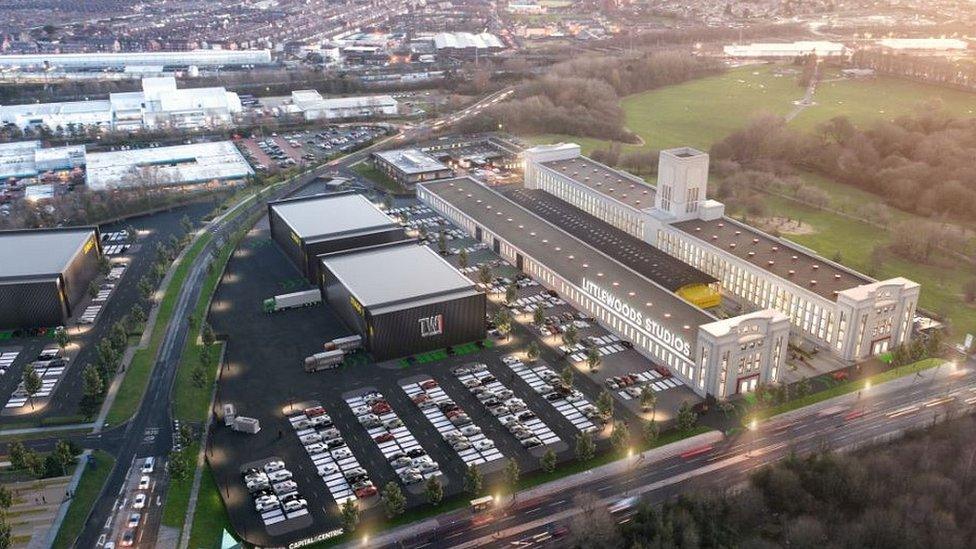Landmark clocktower to be demolished and rebuilt
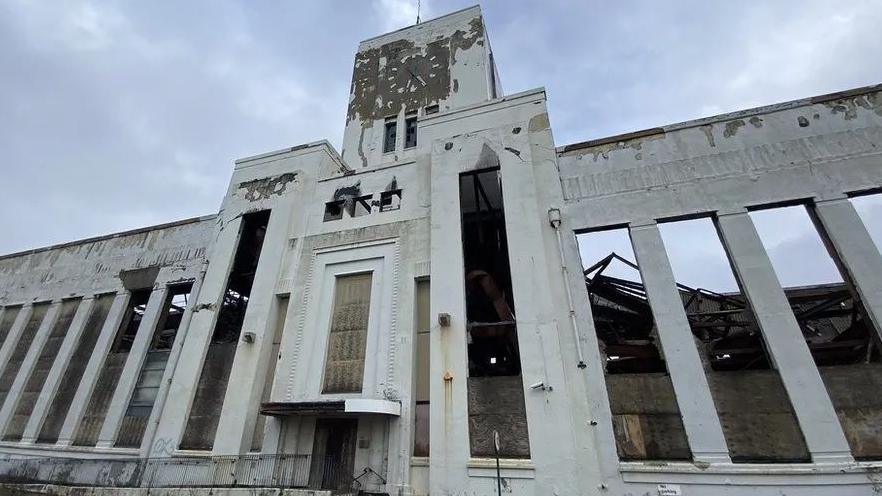
The building closed in 1994 and was damaged by fire in 2018
- Published
The clocktower of a landmark city building which is due to be turned into a film and TV studio is set to be demolished over fears it could collapse.
Work is under way in Liverpool to turn the former headquarters of retail firm Littlewoods on Edge Lane into a production hub.
Developers, Capital and Centric, said a survey had revealed that the tower had become unsafe after being left vacant since it closed in 1994.
A spokesman for the company said plans to demolish and then restore the clocktower "in the same spot" had been submitted.
Allow X content?
This article contains content provided by X. We ask for your permission before anything is loaded, as they may be using cookies and other technologies. You may want to read X’s cookie policy, external and privacy policy, external before accepting. To view this content choose ‘accept and continue’.
A cordon has been put in place around the clocktower after engineers found the structure was at risk of falling.
Workers plan to take down this section of the historical site, first built in 1938, in the coming weeks.
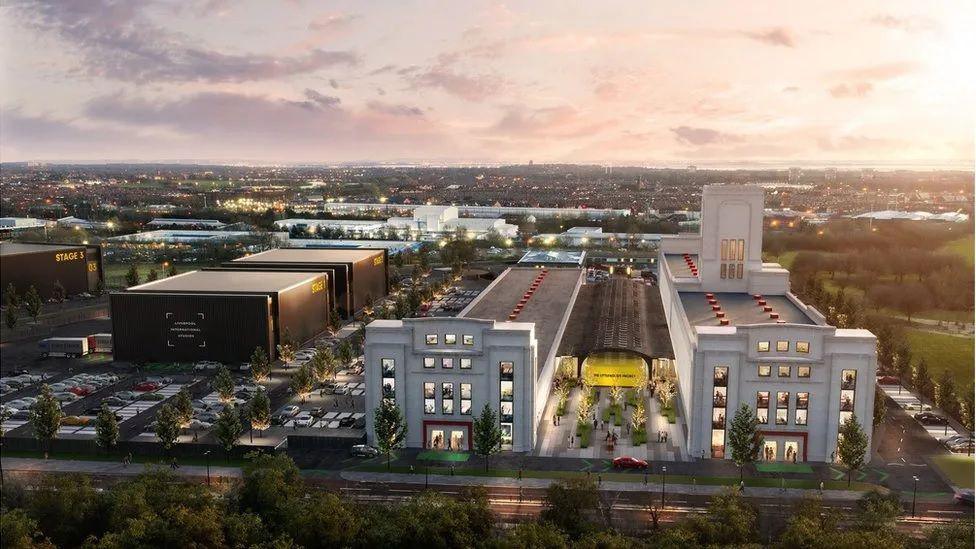
Hundreds of jobs are set to be created as part of the renovation
The developers plan to build sound stages, studios, office space and a training facility at the site.
The renovation is previously said to have been inspired by Pinewood Studios in Buckinghamshire, where James Bond films have been made.
The project has been backed with more than £17m from the Liverpool City Region Combined Authority.
Related topics
- Published15 February 2024
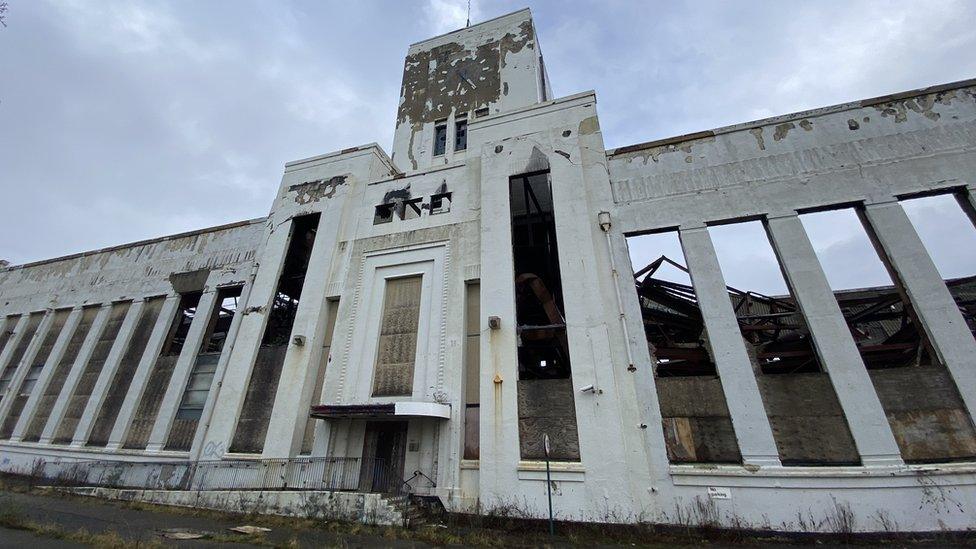
- Published12 December 2023

- Published7 December 2023
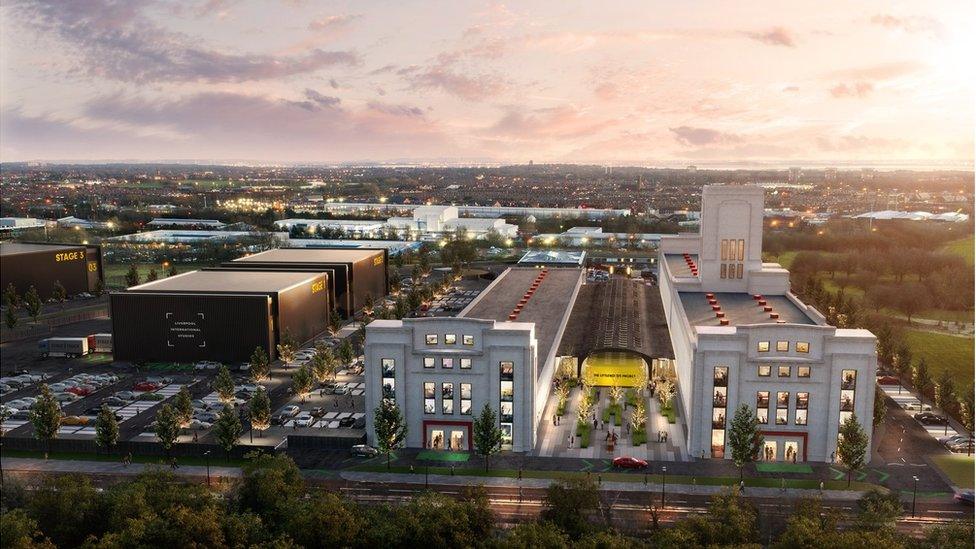
- Published16 June 2023

- Published2 December 2022
